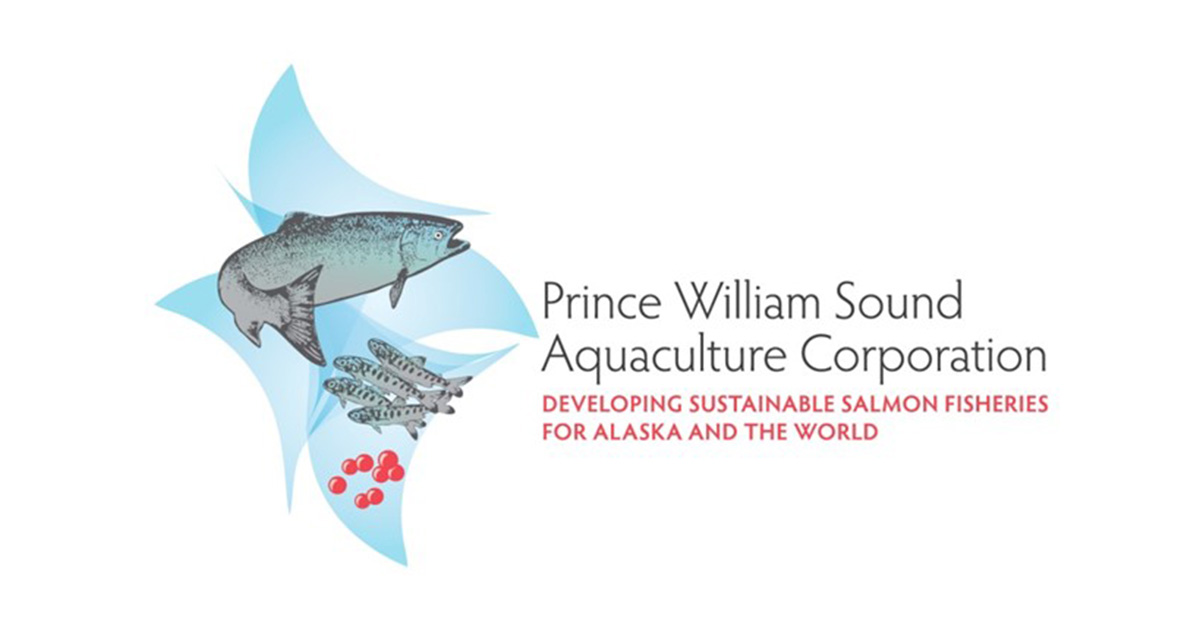Prince William Sound Aquaculture Corporation (PWSAC) is a private, non-profit hatchery association founded in 1974 by a local commercial fishermen’s organization to optimize Alaska’s wild salmon resources.
PWSAC produces hatchery-born, ocean-raised wild salmon for the commercial, sport, personal use, and subsistence fisheries in the Prince William Sound and Copper River regions.
PWSAC is looking for an experienced professional to join our team and lead our salmon hatchery operations. As a key member of our team, you'll be responsible for overseeing all aspects of hatchery operations, including fish culture, personnel management, safety and compliance, and budgeting. To excel in this role, you'll need a deep understanding of fish hatchery operations, aquaculture practices, and a proven track record of strong management skills. You'll also need to be adaptable, able to work well under pressure, and committed to producing high-quality work.
Basic Function: The Hatchery Manager has two basic functions: 1) to serve as the full-charge working manager of a fish hatchery responsible for all site activities including fish culture personnel and fish-related operations, site safety programs, budget management requiring management level decision-making capability on a 24-hour basis; and 2) to work on a daily basis with the Production Manager, onsite Maintenance, safety personnel, and office staff to carry out the directives of the Board. This position is one of the top management positions within PWSAC.
Primary Responsibilities: The Hatchery Manager ensures the efficient, safe operation and administration of the hatchery within applicable regulations. Responsibilities include supervision of fish culture and maintenance personnel, operation of the hatchery production, and liaison with the public. Administrative responsibilities include planning, budgeting, documenting, assessing, and improving hatchery functioning.
Description of duties and tasks:
- Assumes full responsibility for the operation of hatchery facilities, to include operational design, budget, plans, and implementation.
- Directs all phases of production relative to production goals, quality criteria, and risk reduction procedures.
- Plans and assists with experimental fish rearing, disease control, genetic research, and other biological projects.
- Compiles data to prepare comprehensive reports on each season’s hatchery operations; utilizes computer software to accomplish data entry and analysis needs of these reports.
- Participates in the development of long-range plans for the facility. Initiates, executes, summarizes, and reports on these plans and projects.
- Prepares, defends, and manages facility budget.
- Consults with other hatchery managers, fish culturists, maintenance managers, fish geneticists, and pathologists to resolve problems in hatchery operations.
- Advises biological staff in the hatchery and related matters pertinent to various research and management projects.
- Conducts and supervises all aspects of hatchery operations.
- Assures state and federal regulatory and permit compliance related to all aspects of hatchery operations.
- Prepares and submits monthly reports, special reports, and studies contributing solutions to corporate hatchery problems.
- Escorts visitors on tours of the facility.
- Assists with on-site coordination of construction projects.
- Supervises assistant manager, fish culturists, maintenance manager, and lead commissary cook.
- Purchases hatchery supplies and equipment.
- Understands and enforces PWSAC policies and procedures
- Understands and follows applicable State and Federal regulations
- Monitors and assures implementation of the hatchery safety program, environmental program, and related functions.
- Effectively interacts with the public and directs inquiries to appropriate departments or persons.
- Performs related duties as assigned.
Essential Functions: Work performed at any hatchery or remote location as needed. Must be able to move about freely; work outdoors in all weather conditions; ability to lift and carry 50 pounds; ability to climb stairs and ladders; ability to climb aboard and about vessels and small aircraft; work around water—on docks and floats; use telephones and computers unimpaired. Must be able to read, write, speak, and understand the English language. Must be able to hear and see to receive verbal and written instructions.
Knowledge, Skills, and Abilities:
Knowledge of fish hatchery operations and procedures; principles and practices of aquaculture, including new technology, methodology, and analysis; fish life in Alaska including the kinds, distribution, and importance of various species, their habitats, and requirements; methods of preparing fisheries development and improvement projects; methods, materials and equipment used in fish culture, including complex electronic, mechanical and biological integrations; fish reproduction and rearing processes and procedures; procedures and practices followed in the identification of fish diseases, dietary disorders, and parasitic infestations of eggs, fry, fingerlings and smolt and other problems involved in fish culture; methods of preparing fisheries development and improvement projects; and principles of planning, organizing and conducting hatchery programs.
Ability to apply knowledge of fisheries biology to hatchery management activities and techniques; develop and monitor budgets; conduct fry/smolt research; use field and lab equipment, tagging and sampling gear, computers, and computer software; perform technical hatchery studies and prepare technical reports and articles; maintain records, prepare routine and special reports, conduct correspondence related to the work; analyze situations accurately and take prompt, effective action; supervise and train lower-level employees, and plan, direct and coordinate the work of others; communicate with others, both verbally and in writing; maintain favorable public relations; and work an extended and irregular work schedule.
Minimum qualifications:
- Bachelor’s degree from an accredited college with a major in fisheries science or a closely related field; and two years of experience in progressive management at a salmon hatchery.
- Substitutions: Four years of any combination of progressively responsible management experience in aquaculture or mariculture and an AAS degree in Fisheries, Biology, or a related field.
- Must have a current driver’s license.
BENEFITS
- Health/Vision/Dental Insurance (no monthly premium cost)
- Life Insurance (no monthly cost)
- 403(b) Retirement Plan - 100% employee vested upon hire, employer match after 1 yr of service
- 5+ Weeks Annual Leave
- Work Wear Allowance
- Relocation Assistance
- In-Season Bunkhouse Lodgings, single occupancy room with bathroom





